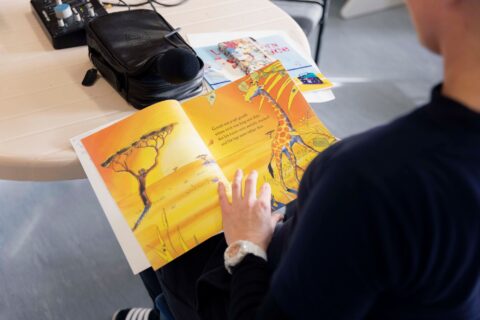Can you tell us about your background and how you came to be the CEO of Public Trust NZ?
I grew up in the Wellington region and attended the School of Architecture and Design at Victoria University, while working part time at ANZ Bank. After graduating from university, I accepted a more senior leadership role at ANZ and have since forged a career in the financial services, insurance and corporate trustee industries.
There is no one pathway to becoming a CEO. Reflecting on my journey, I consider that my success has come not only from my ability to lead and motivate people to deliver improved business outcomes but also how I engage and influence with various stakeholders and my willingness to learn and adapt.
I have proactively sought out new experiences across a range of portfolios (strategy, sales, operations, product development, HR, project management and marketing), immersed myself in formal and informal learning opportunities and surrounded myself with talented people to give me coaching, advice and support.

What advice would you give to women who aspire to be in a leadership position?
To women out there who are thinking about a leadership role my advice is: go for it. Whatever is holding you back, which is often the conversation we’re having with ourselves rather than what anyone else says to us, I encourage you to change your narrative. Sure, new roles and particularly leadership, can be challenging but also very rewarding.
You want to keep your career in your ‘stretch zone’, where your work pushes you to learn new things and experiment. Remember that if you’re going for a role where you’re already fully competent, there’s no room to grow. Be confident in what you offer, who you are and don’t be afraid to ask for what you want.
Also, don’t be fooled by anyone who looks like they’re superhuman and managing it all perfectly. Leaders at all levels experience similar challenges and we all have our moments where the stress or busyness gets to us and we need to hit the pause button and take a breath. There are huge demands on all of us and we can only be and do our best when we are kind to ourselves.
How have you overcome challenges as a woman in a leadership position?
Imposter syndrome, overcoming my perfectionist tendencies, managing negative self-talk and dealing with inequality in the workplace are some of the challenges that I have needed to work through.
Inequality in the workplace for women, particularly around pay and promotion, is no secret and I have learnt to bridge this gap by taking the initiative to ask for new experiences to build my skills and having those courageous conversations about what I’m worth.
Coupled with negative self talk and bouts of imposter syndrome, this has not been easy, however I remind myself that I have demonstrated expertise, determination, collaboration and leadership skills to earn each role I’ve held and worked hard to achieve my success.
I’ve had many moments of real vulnerability throughout my career, and each of these moments has given me greater confidence to face into some of these challenges, because it’s usually the conversation or work that will lead to the most meaningful change.
What are some of your current priorities at Public Trust NZ?
At Public Trust our purpose is to empower New Zealanders to build and protect their legacies. We do this through our work as New Zealand’s largest provider of estate planning and management services as well as our many other functions such as charitable trusts and corporate trustee services.
Our research shows that currently around 50% of adult New Zealanders have a will. From our experience, families often experience significant challenges and additional costs when a loved one passes away without a will in place.
One of our priorities is to significantly increase the number of Kiwis who have a will by making them more accessible and educating people on why they are so important. This will not only give them peace of mind but will ensure that their families can avoid some of these unforeseen challenges.
We’re also investing in technology to reimagine how we deliver our services so that this is more seamless for our people and customers.
Why is it so important to have a will?
A will ensures that the things that matter most to you pass on to the people or organisations that matter most to you. A lot of people think everything will automatically go to their next of kin when they die, which is not always the case.
Having a will that sets out your wishes regarding your assets or special items, the care of your children, what will happen to your pets and your funeral arrangements lets your loved ones know how you want to pass on your legacy.
It’s an important document that all adult Kiwis should have in place, particularly if you have $15,000 or more in assets (with average KiwiSaver balances approaching $30,000, this is more of us than we realise).
In recent years, there has been a growing focus on diversity and inclusion throughout New Zealand. How does the Public Trust approach this?
At Public Trust we have a culture of care and one of our most important values is that we put people at the heart of everything we do. We take our culture work seriously and have worked with our people to articulate our values and our purpose and to put in place a framework that allows everyone to contribute to strengthening our culture.
We’ve done a lot of work to build a diverse and inclusive workplace, where our people feel safe to speak up – to share their ideas, raise issues, contribute to improvements and most of all be confident to be uniquely themselves.
Our culture work continues to mature and we’re always looking at ways we can respond to our people’s feedback and make sure everyone feels like they belong at Public Trust. Importantly, we’re also focused on how we can engage and connect with different ethnic communities so that we can evolve our services to be more relevant for their particular needs.
Do you think AI & technology will have any effect on your sector going forward?
We are already using technology to help customers gain better access to our services, including through our online platform for creating wills and enduring powers of attorney (EPAs), and we anticipate this will continue. I see technology and AI as important enablers for our business to be able to deliver our services more efficiently and make it easier for New Zealanders to get their estate planning sorted.
One thing we would love to see in the near future is the ability to compete wills and EPA documents digitally and save these in a digital space. This would go a long way to helping those in remote areas, or with limited ability to visit a lawyer’s office or trustee services organisation to more easily access and complete these important documents.
While technology will continue to smooth processes and increase accessibility to our services, there will always be an important role for humans in our industry. Working with people at some of the most difficult times in their lives requires real, human empathy.








